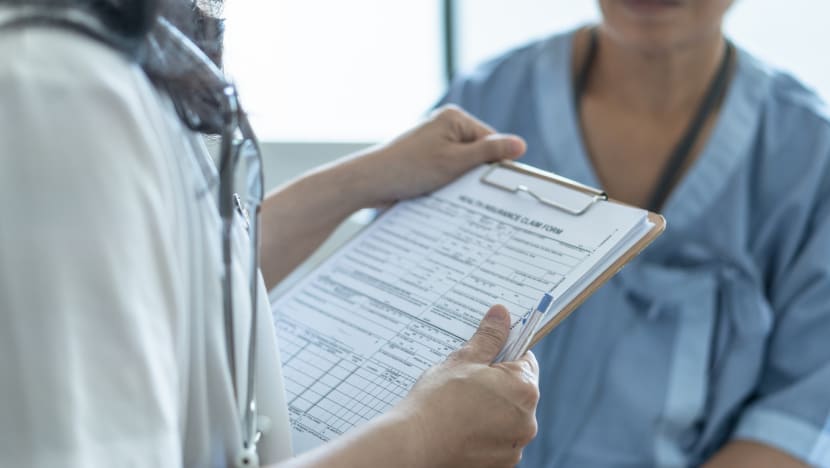Indonesia president-elect Prabowo to launch free national health check-up plan, starting in 2025
The ambitious health initiative will target an estimated 55 million Indonesians and will focus on efforts to combat tuberculosis (TB), which remains a major public health challenge in the country, with thousands of deaths from the disease reported every year.

Illustration of medical check-up conducted at a hospital. (Photo: iStock/Chinnapong)

This audio is generated by an AI tool.
JAKARTA: Indonesia’s President-elect Prabowo Subianto is set to introduce a free medical check-up programme, targeting 55 million Indonesians starting from 2025.
The initiative, part of the administration’s broader healthcare reforms, will focus on key health indicators such as blood pressure, blood sugar, uric acid, and early detection of severe diseases.
"Next year, 55 million Indonesians will undergo free medical check-ups," said Burhanuddin Abdullah, Mr Prabowo’s Economic Advisor and Chairman of the Prabowo-Gibran National Campaign Team's Board of Experts, as quoted by CNN Indonesia on Wednesday (Sep 25).
This ambitious health initiative aligns with government efforts to combat tuberculosis (TB), which remains a major public health challenge in Indonesia. Currently, the country ranks second globally for TB cases, with approximately 100,000 people dying from the disease each year.
In its initial phase, the free medical check-up programme will prioritise individuals over the age of 50, as well as those deemed at high risk of contracting TB or other serious illnesses. Over the next five years, the program will expand to cover an estimated 200 million citizens.
Mr Hasan Nasbi, head of the Presidential Communications Office, revealed in an interview with Kompas TV that Mr Prabowo's government has earmarked a total of 5 trillion rupiah (US$330 million) from the 2025 draft State Budget to fund the Free Medical Check-up program and improve healthcare infrastructure.
Of this, 3.3 trillion rupiah is specifically allocated for the check-up initiative, while 1.7 trillion rupiah will be directed towards expanding healthcare facilities, including the construction of new hospitals, Mr Hasan said.
The initiatives are not just about treatment but also about promoting preventive care and healthy living among Indonesians, he added. By encouraging early detection and routine health monitoring, the programme aims to reduce the financial burden on the Social Security Agency for Health (BPJS Kesehatan), which currently covers a significant portion of the population’s health care costs.
"Good health is a cornerstone for building a healthier, more productive generation," Mr Hasan said. "The free medical check-up program is a vital step towards safeguarding the health of Indonesia's human resources.”
But despite Mr Prabowo’s ambitious goals, questions remain about how it will integrate with existing healthcare services in Indonesia.
Mr Ali Ghufron Mukti, director-general of Indonesia’s national health care agency BPJS Kesehatan, highlighted that health screening programmes were already being offered and are available annually to all participants under the National Health Insurance scheme (JKN).
Discussions with Mr Prabowo’s incoming administration are ongoing, Mr Ali added, with no final decision yet on whether BPJS Kesehatan will be involved in administering the new national health care programme or managing its payment schemes.
However, health experts have expressed cautious optimism about the programme with some voiced support for it as a critical preventive measure aimed at curbing the decline in public health standards.
Mr Dicky Budiman, an epidemiologist from Griffith University in Australia, said that by focusing on preventive care, the state stands to reduce future healthcare costs, particularly in financing treatments for BPJS Kesehatan beneficiaries.
"Preventing diseases is not only beneficial for public health but also helps avoid overwhelming the national healthcare budget," he said as quoted by detikHealth.















